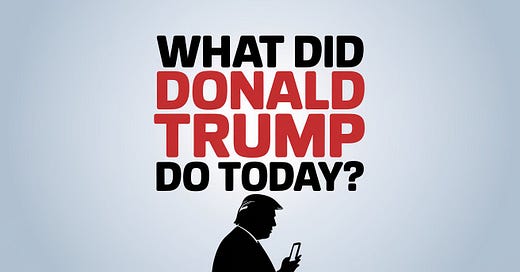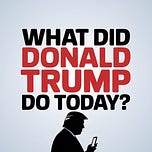Donald Trump's 2025 Memorial Day communications, both on Truth Social and during his official address at Arlington National Cemetery, collectively reflected a pattern of political opportunism, inflammatory rhetoric, and personal aggrandizement. His Truth Social post, ostensibly commemorating Memorial Day, was instead a vitriolic attack on political opponents, judges, and immigrants, featuring dehumanizing language such as referring to critics as “scum.” He issued exaggerated claims about illegal immigration—invoking an absurd figure of “21,000,000 million”—and portrayed the judiciary as a conspiratorial force undermining national security. Rather than fostering unity or remembrance, the post repurposed the solemn day into a platform for divisive grievances and xenophobic panic.
Additional posts targeting Harvard University escalated these themes. Trump threatened to strip the university of $3 billion in federal funding, accusing it of antisemitism and harboring “radicalized lunatics” among its foreign students. These accusations were unsubstantiated and rooted in nativist suspicion, with echoes of McCarthyism. His demand for foreign student lists and suggestions of judicial manipulation signaled an authoritarian bent and a willingness to cast institutions as enemies when they do not align with his agenda. These were not serious policy arguments but expressions of retaliatory intent and conspiracy-laden narratives.
His economic posts followed the same hyperbolic tone, boasting about a supposedly historic U.S. comeback and international trade interest without evidence or specifics. Phrases like “THE GOLDEN AGE OF AMERICA” and references to “many Trillions” of investment lacked credibility and served more as promotional slogans than informed economic updates.
The pattern of politicizing public institutions extended to Trump’s pardon of Sheriff Scott Jenkins, convicted of corruption. Trump painted Jenkins as a victim of a “weaponized” Department of Justice and attacked the judge who presided over the case, again offering no legal rationale or procedural transparency. The pardon was framed as a personal act of loyalty, not a reflection of judicial fairness, further entrenching a vision of executive power unconstrained by legal norms.
Finally, Trump’s Memorial Day address at Arlington further illustrated this pattern. While he included heartfelt tributes to fallen service members, these moments were overshadowed by frequent digressions into personal triumphs, political grievances, and campaign nostalgia. He spoke of “fixing” the country, reclaiming sporting events, and invoked divine endorsement of his return to office. His tone veered from sentimental to boastful, with disjointed delivery and informal asides that diluted the gravity of the occasion. Instead of a unifying, reverent message, the speech became a vehicle for self-congratulation and political theater.
Taken together, Trump’s Memorial Day communications were marked by a disregard for the solemnity of the holiday, a consistent undermining of institutions, and an emphasis on personal vindication over public unity. They blurred the lines between commemoration and campaigning, replacing respect with resentment and patriotism with partisanship.













Share this post